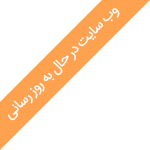From Science to Philosophy
The Analytical Method or the Combination Method?
One of the issues in scientific and philosophical discussions and debates is which method is more suitable: analytical or combination. Some philosophers defend the analytical method, believing that a phenomenon must be analyzed into its components up to a point where further separation is not possible, and then it can be studied and explored. Bertrand Russell, for instance, was one of the intellectuals who named his method "logical atomism." He believes, "The only label I have ever given to method is 'logical atomism,' although I have always avoided being labeled with something. I believe that logical atomism means the only way of discovering the nature of objects is analysis as exhaustively as possible; the resulting components are 'logical atoms' – or that's what I've named them – for they are not small physical particles, [but] components of ideas, outside the issues concerned with the structure of things."
The problem with purely analytical knowledge and discovery is that it studies a phenomenon totally regardless of other phenomena. In other words, it does not see each component as related to the other beings and phenomena it is surrounded by.
The analytical method is of importance in discovering facts about the universe, but it is incapable of a full discovery. The combination method can serve as its complementary.
Extreme applications of the combination method makes man cast doubt upon the most obvious of realities, and be left with a scattered collection of knowledge. Nowadays some people think that the analytical and combination methods belong to scientific domains and the combination and generalist approaches suit philosophy. We must keep in mind that the scientific method is not solely analytical, nor is the philosophical method entirely combination. A harmony between the two methods is what can provide man with accurate knowledge.
The analytical method is suitable for studying sets where the components have no interactive relation with each other. In other words, the analytical method is best when if by discovering each component, accurate knowledge is achieved. But when the components interact with each other and their combination results in a new phenomenon, the analytical method does not suffice. Merely mentioning that water consists of oxygen and hydrogen, or that salt is a combination of sodium and chlorine is not enough – merely identifying hydrogen and oxygen tells us nothing about the qualities and characteristics of water.
Knowledge gained by the analytical method, therefore, ignores the combinatory characteristics of the whole.
The problem with the analytical method is that having separated the whole and studying each component, the researcher considers each component as absolute. In other words,
The most serious harm the analytical method can do to knowledge is that by following this method, the thinker, having separated and analyzed the whole, a component becomes the absolute reality of his study, affecting everything else.
As an example, George Sarton believes that, "The history of science is one of the major parts of the spiritual history of human beings, and the other major parts are the history of art and religion." On the other hand, he has said that, "In order to account for man's progress, the history of science should be the basis of the explanation." In fact, he is following an analytical method; therefore, he is considering the history of science, a mere part of the history of human evolution, as the absolutely basic part.

